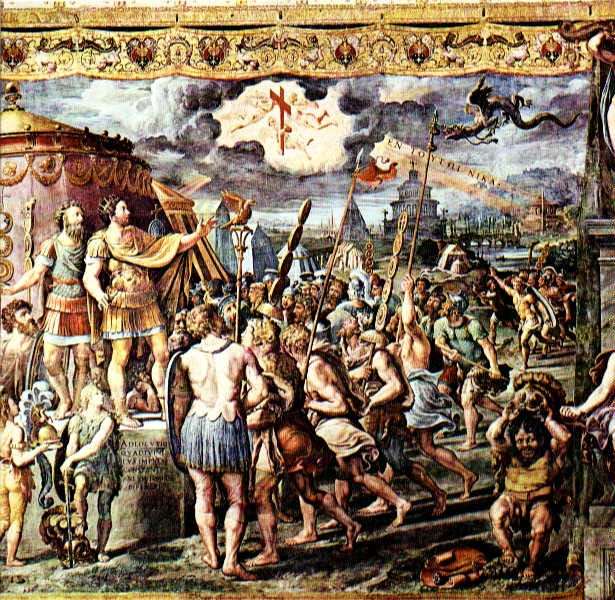Thought
You have heard it was said, “You shall love your neighbor and hate your enemy. But I say to you, Love your enemies and pray for those who persecute you, so that you may be [children] of your father in heaven. For he makes the sun rise on the evil and the good, he sends the rain on the just and on the unjust.
—Jesus, Matthew 5:43-45
Every morning I write an email exploring life through the eyes of the world’s greatest thinkers. Sign up here if you would like to receive it directly in your inbox.
Application
Perhaps this concept isn’t very complicated or obscure. In fact, it’s a fairly well known sentiment. It is, however, very difficult to enact and live out in a world of constant violence, war, and division.
So the real question is, how does one live up to the ethic of enemy love, and what would that look like?
In many respects, this ethic fits nicely with yesterday’s overview of Care Ethics. In the same way that Gilligan noted the growth of one’s care—from personal, to other, to fully inclusive—Jesus is arguing that we must have room in our personal care for ourselves and for other people.
He is calling for a truly nondual consciousness in which we accept that what is done to me, is done to you.
Compare this request to love even your enemy with another of his sayings captured in Mark 12:31 to,
Love your neighbor as yourself
Or the famous “golden rule” found in Matthew 7:12
So whatever you wish that others would do to you, do also to them.
Over the course of his teachings, Jesus is making a clear argument to see yourself as worthy, to see yourself in your neighbor, and then to see yourself even in your enemy—this is the highest ethical calling of Jesus, and this ethic is called love.
At the heart of this instruction to love is not a request to ignore suffering or become complicit. Rather, at its core, love is an acceptance not unlike what we discovered last week from Epictetus,
What upsets people is not things themselves but their judgements about the things. For example, death is nothing dreadful (or else it would have appeared dreadful to Socrates), but instead the judgement about death that it is dreadful.
Similarly, Jesus places the agency for love and inclusion in our control, not in waiting for change to come from an oppressor or one who does evil. God sends them the same blessings doled out to you (rain and sun), so why you should you treat them any different than god?
Besides, you may believe them to be evil, but what if they believe themselves to be good? Moreover, what if you see yourself as good, and they see you as the enemy? Perhaps you hate them because of your judgement more than their moral failure?
If we can accept that our judgement of evil and good do not determine if one is truly an enemy, and if we can separate our happiness from our egoic need for punishment and retribution, the promise of Jesus is that we discover the bliss of being a child of god. The Buddha might have called this liberation or nirvana.
Know someone who would find this interesting? Share it here!
Backstory
The ethical concepts constructed by Jesus nearly 2,000 years ago appear in many ways lost to time. What I mean by this, is that the core message of the teachings left behind by Jesus and his early followers has played a long and arduous game of telephone to get to us.
Any serious scholar of a Christian ethic (that is, an ethical framework constructed by Jesus) has to reconcile with a few historical moments of christian evolution.
The first of which is the radical transformation that Christianity took about 300 years after Jesus. The Roman empire had been in sharp decline and a new power struggle was on the brink of reestablishing Rome.
The leader of this resurgence was a general waging violent war. He would go on to become the first emperor of this new regime, and created a civil religion of sorts to unify his fractured empire.
At the time of this unification, the area that used to be Rome was roughly 80% Christian, so a vast majority of the political propaganda was focused on justifying their reign through Jesus’ authority.
Early in his time as the first Emperor of the Holy Roman Empire, Constantine dictated to his historian Eusebius
He [Constantine] said that about noon, when the day was already beginning to decline, he saw with his own eyes the trophy of a cross of light in the heavens, above the sun, and bearing the inscription, CONQUER BY THIS (IN HOC SIGNO VINCES/ἐν τούτῳ νίκα.)
To put it in layman’s terms, just before Constantine won the last battle that would elevate him to Emperor, he claims to have seen a sign from heaven (a cross) that told him to “Conquer by This.”
Constantine would spend the remainder of his career developing an empirical christianity that would be carried through and develop within the Roman Empire, the British Empire, and even in many respects the American empire.
This explains how the teacher who taught us to “love your neighbor as yourself” and “love your enemy” is also asked to “bless our bombs and give us victory on the battlefield.”
The reason I set up this tension, is that it is an important reality any serious scholar of Christian ethics must wrestle with.
Can one follow Jesus’ ethic of love, and also ascribe to any worldview which perpetuates duality, division, war, or violence?
Can one follow Jesus and also support war, the death penalty, or violence-based politics? Can one reconcile Jesus’ teachings and Constantine’s claim that he must “Conquer by this?”
Constantine is quite literally claiming that Jesus told him to kill his enemies in the name of Christ, and I often wonder if that message made it through history much smoother than the request to love our enemies and our neighbors as ourselves.
And this is why enemy love as an ethic is so difficult. One must really believe in the value and understand this ethic to live it out in a world of often violent religion.
The good news about internalizing enemy love: you don’t need permission to start, you can begin leaning in and making the change you want to see in the world.
I hope this find you well friends, until tomorrow,
-TPP
Image: https://en.wikipedia.org/wiki/In_hoc_signo_vinces#/media/File:Stanze_Vaticane_-_Raffaello_-_Apparizione_della_croce.jpg
References:
https://byzantinerealhistory.wordpress.com/2019/10/26/in-this-sign-you-shall-conquer/












